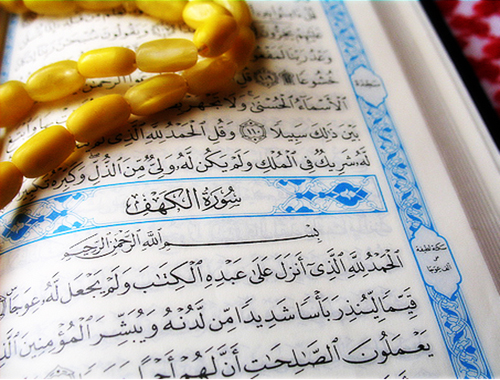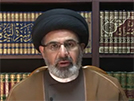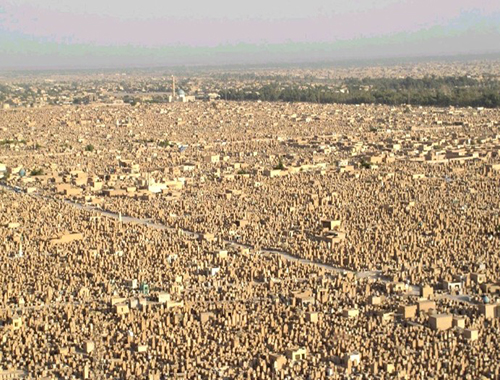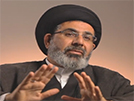
One of the foods to which attention is drawn in the Qur'an is the olive. Research in recent years has revealed that the olive is not just a delicious food but also represents an important source of good health. In addition to the olive itself, olive oil is also an important source of nutrition. Attention is drawn to the oil of the olive tree in these terms in the Quran:
Allah is the Light of the heavens and the earth. The metaphor of His Light is that of a niche in which is a lamp, the lamp inside a glass, the glass like a brilliant star, lit from a blessed tree, an olive, neither of the east nor of the west, its oil all but giving off light even if no fire touches it. Light upon Light. Allah guides to His Light whoever He wills and Allah makes metaphors for mankind and Allah has knowledge of all things.
(Quran, 24:35)
The expression "mubarakatin zaytoonatin" in the above verse describes the olive as being "plentiful, sacred, auspicious, providing countless blessings." Olive oil, referred to in the term "zaytuha," is known as one of the most highly recommended types of oil by all experts, especially for coronary and arterial health. Its health benefits may be summarized as follows:
Benefits for Coronary and Arterial Health
Most of the fatty acids in olives and olive oil are mono-unsaturated. Mono-unsaturated fatty acids do not contain cholesterol. Therefore, olive oil does not raise cholesterol levels but instead keeps them under control. Olive oil also contains omega-6 linoleic acid (EFA: Essential Fatty Acid), which is essential for the human body. Due to this feature, health-related bodies (such as The World Health Organization) recommend that at least 30% of the fatty acid consumed in societies in which hardened artery and diabetes levels are high should consist of omega-6. This increases the importance of the olive still further. [Scientific Encyclopedia, 207]
And by it He makes crops grow for you and olives and dates and grapes and fruit of every kind. There is certainly a Sign in that for people who reflect.
(Quran, 16:11)
Studies in this area have revealed much lower LDL (bad cholesterol) and higher antioxidant levels in people who consume 25 milliliters (about two dessertspoonful) of natural olive oil a day for one week [European Journal of Clinical Nutrition, April 2002, 56: 114-120]. Antioxidants are important as they neutralize the harmful substances in the body known as free radicals and prevent cell damage. It has also been established in a great many studies that the consumption of olive oil reduces cholesterol levels and prevents heart disease. [Archives of Internal Medicine 1998; 158: 1181-1187]
Olive oil is also recommended for patients with heart and artery disease since it reduces the level of harmful cholesterol (LDL) in the bloodstream and raises that of useful cholesterol (HDL). In countries with high occurrences of heart and artery diseases, saturated fats with high cholesterol content are generally consumed.
In addition, olive oil does not disrupt the proportion of omega-6 to that of omega-3. It is very important that omega-3 and omega-6 be present in the body at specific levels because any imbalance in these proportions can lead to progression in many diseases, especially those of the heart and immune system and cancer.131 For all these reasons, many people enjoy good health thanks to olive oil. The American Heart Association suggests that in order to reduce the risk of heart disease high mono-unsaturated fats can be an alternative to a 30% reduced fat diet. [Journal of the American Heart Association, September 1999]
Prevention of Arthritis
According to researchers' reports, people who consume large quantities of olive oil and cooked vegetables can have a reduced risk of rheumatic arthritis, a chronic inflammatory disease of the joints.
Contribution to Child Development
Due to the linoleic acid (omega-6 fatty acid) contained in olives and olive oil, these are a most healthy food for newborn babies and growing children. A deficiency in linoleic acid leads to the emergence of a retardation of development in babyhood and various skin disorders.
Olive oil contains anti-oxidant elements that prevent the destructive effects of harmful substances in our bodies, and fatty acids of great importance to human health. These support the hormones and assist in cell membrane formation.
Olive oil possesses a balanced polyunsaturated compound at a similar level to that in human milk. Olive oil is a sufficient source of these fatty acids, which cannot be obtained from the human body but which are of the most essential importance to it. These factors make olive oil very important for new-born babies.
Since it contributes to the natural development of the baby's brain and nervous system before and after birth, olive oil is the only oil recommended for mothers by experts. As well as containing similar levels of linoleic acid to those of mother's milk, when olive oil is added to fatless cow's milk, it becomes as natural a food source as mother's milk itself.
Blood Pressure Reduction
One study published in the 27 March 2000 edition of Archives of Internal Medicine once more stressed the beneficial effect of olive oil on high blood pressure. Medicines to reduce high blood pressure are also made from olive leaves.
This article borrowed from Miracles of the Quran.
 Blood Pressure - Islam Guidance
Blood Pressure - Islam Guidance









